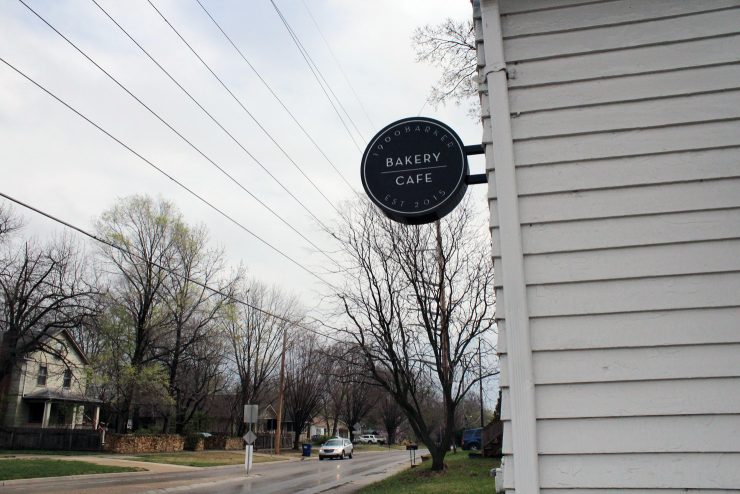
Nestled in a former laundromat in a southeastern neighborhood of Lawrence, Kansas, the bakery and cafe 1900 Barker is quite unassuming. It would be easy to enter the roundabout where the shop is and spin right on past and down the road. But you’d be missing out.
Inside, a crowd steadily filters in on a cloudy Saturday morning. Customers are warmly greeted, usually by first name, as they look over the pastry case, struggling to make a decision. Samples of house-made, naturally leavened breads sit next to the register as amuse-bouches. Bread and pastry orders move quickly across the counter; coffee drinks match their speed. A lively atmosphere brightens the shop.
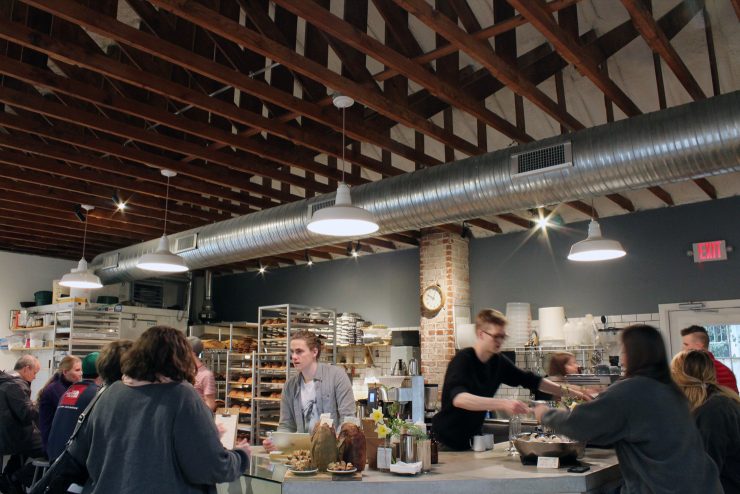
Co-owner Taylor Petrehn describes an elaborate process stretching over three days to make 1900 Barker’s naturally leavened bread. He begins with a mother dough, adding ingredients such as seeds, olives, or a rich fermented fruit, depending on the recipe. Before the bread goes into the oven two days later, there’s regular maintenance on the swelling cocoons of these soon-to-be loaves. This gives the bread “soul,” according to Taylor: crusted outsides with a soft, sweet interior.
There’s plenty more for Taylor, the baking half of the brothers who own 1900 Barker, to do: There is croissant dough to roll out for the cafe’s three varieties (original, chocolate, and ham and cheese). That’s in addition to the other options in the pastry case, such as cookies and a different special each weekend. How does it happen? The baking schedule begins at 3 a.m. and concludes around 8 or 9 p.m.
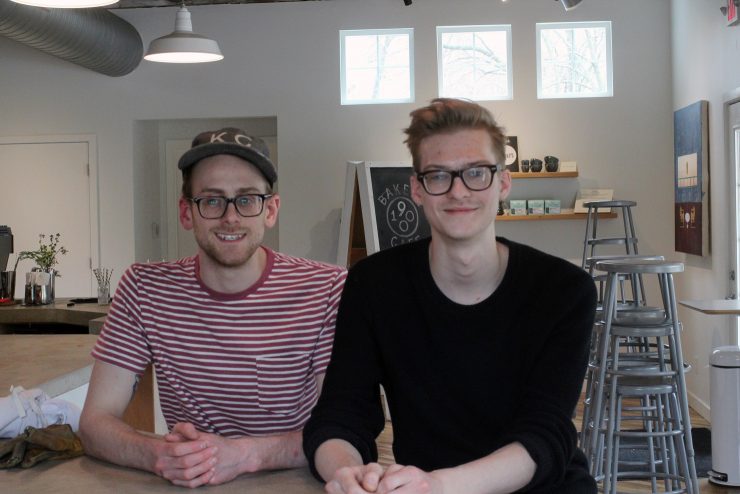
“Our goal with the bread and the pastry program is to highlight the grains that we use, and the process, and that the breads are all naturally leavened,” Petrehn says. “It is one of the healthiest ways to eat bread, and it is also the most transformative of the grain itself, in that the grain is the main pivot point for where the flavor comes from. When you ferment that, it pulls out all the different health benefits and flavors and things that are found in just one specific grain.”
Taylor’s brother Reagan has a more difficult time explaining the coffee program. He began his coffee career at Overland Park shop Revocup before moving on to Kansas City stalwarts The Roasterie and Parisi. He then took a job in China as an in-house coffee trainer with Greenhouse Coffee, which he describes as “pivotal.”
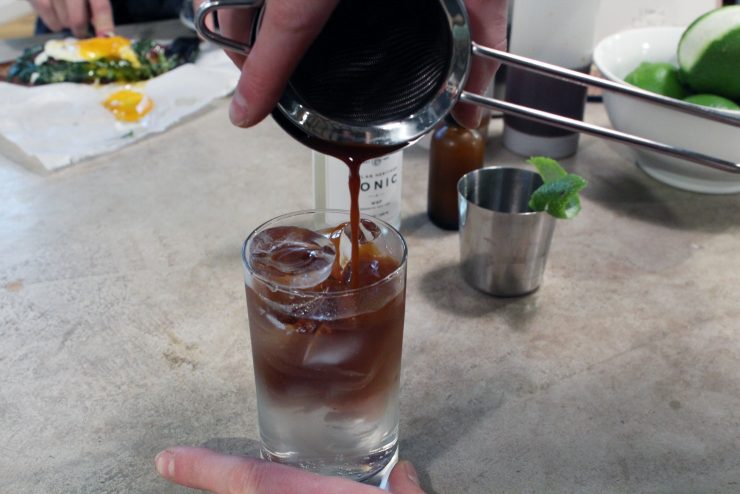
“It took me from this preconceived notion of what you [needed] to have good coffee to showing me how relative it was,” Reagan says. “How much it relies on not just the final product but also the presentation and who you are giving it to and how you interact with them. Because we were in a smaller part of China and Third Wave coffee culture was not even a thing there, but they had coffee shops.”
1900 Barker takes a multi-roaster approach: bags from Vancouver’s 49th Parallel Coffee Roasters, Boston’s George Howell Coffee, and Portland’s Heart Roasters are spread along the retail shelves upon my visit. Unlike at many Third Wave shops, the hand-brewed coffee here has been replaced by a FETCO that brews small batches regularly. For espresso and milk drinks, shots are ground on a Mahlkönig EK 43 or a K30 Twin. The grounds are dosed in the portafilter, then loaded into a La Marzocco Linea PB and pulled through a preset amount of water, a method called volume-metrics. The shot’s duration of time is not considered—the info panel on the espresso machine announces only the pulses of water flowing through the machine—which is a departure from convention.
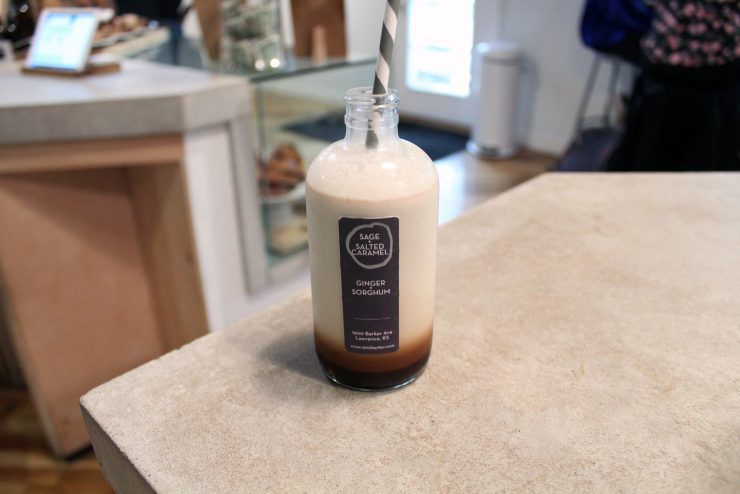
“I just feel like there is such dogma to the way coffee should be done irrespective to what is actually going on,” Reagan explains. “[Using] volume-metrics and a FETCO gives us the opportunity to be super-fast on the bar, which contributes a lot to the atmosphere of the place. I don’t think [people] come in here thinking of this as a slow bar where you are going to sit down. I like the idea of people being able to come in, get something delicious really fast, and just be able to be on their way, and I think that is hugely affected by things like volume-metrics and batch brewing.”
Upon opening in June 2015, 1900 Barker’s menu was limited. As the Petrehns would quickly sell out of coffee and baked goods in the morning, they adjusted their processes to meet demand. And since seating is in short supply, a back patio is set to be installed sooner than later. Otherwise, the brothers plan on seeking out new possibilities for both their coffee and baking programs.
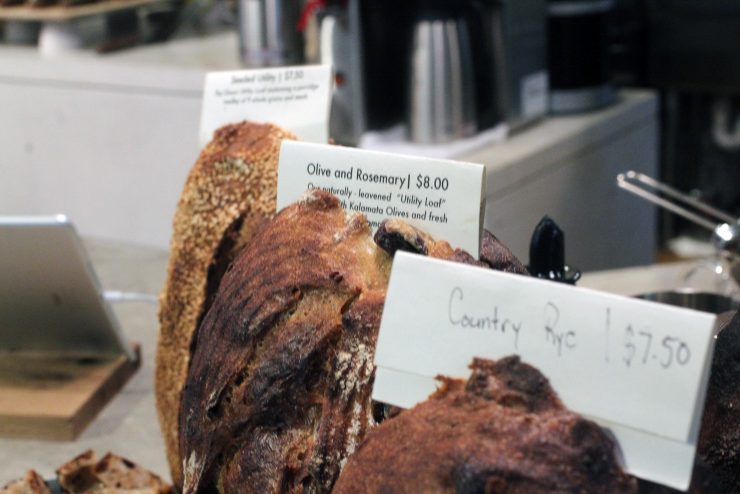
“I think we both have a vision of not just a product we want to serve but also an experience we want people to have,” Reagan Petrehn says. “That’s what we always push for. With the espresso bar, I want to make the best coffees that I can make and give people the best experience that I can give them, and everything that isn’t essential to that gets stripped away. It is a constant search for what we don’t need and what we do. I don’t think we are ever really going to settle onto that. I think it is always going to be changing, and I would hope so.”
1900 Barker is located at 1900 Barker Avenue, Lawrence, Kansas. Visit their official website and follow them on Facebook, Twitter, and Instagram.
Evan C. Jones is a Sprudge.com contributor based in St. Louis. Read more Evan C. Jones on Sprudge.
The post Coffee & Bread With Soul At 1900 Barker In Lawrence, Kansas appeared first on Sprudge.

